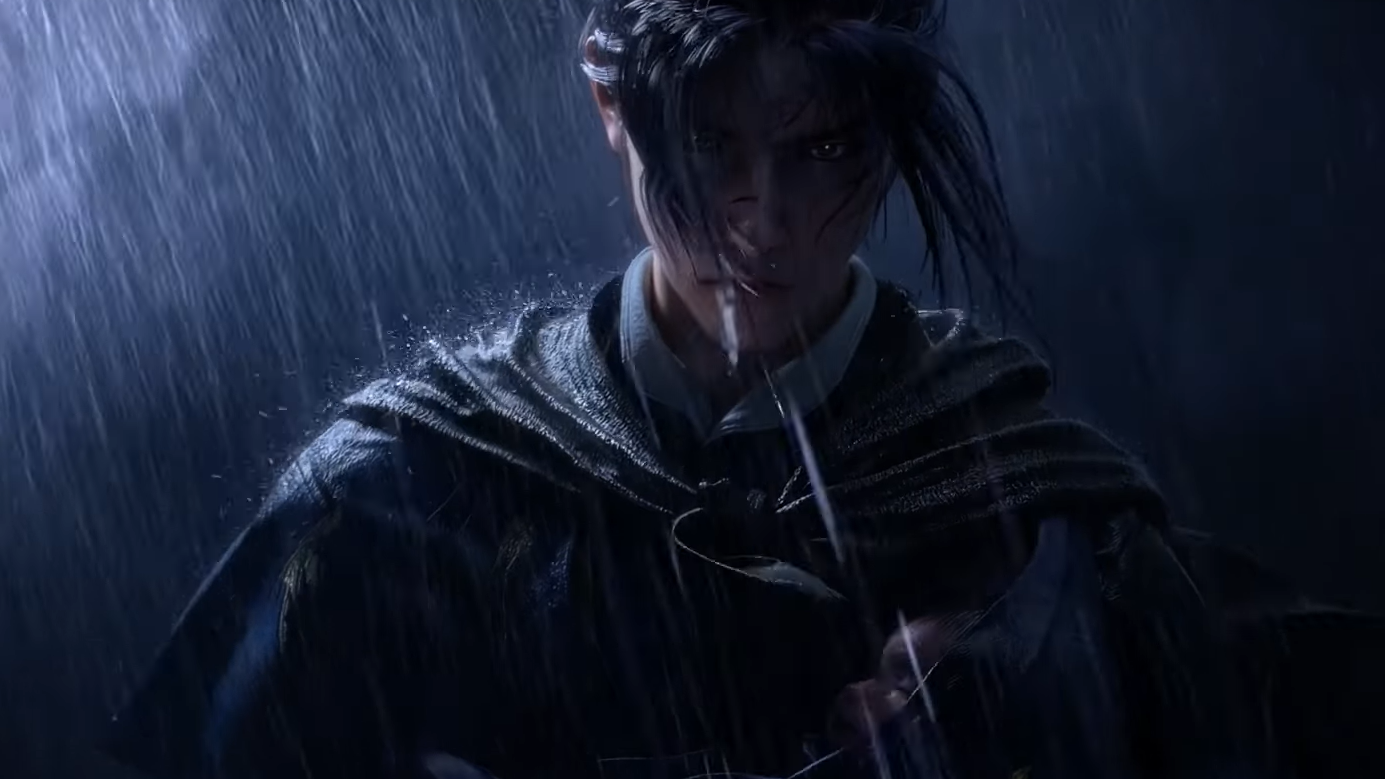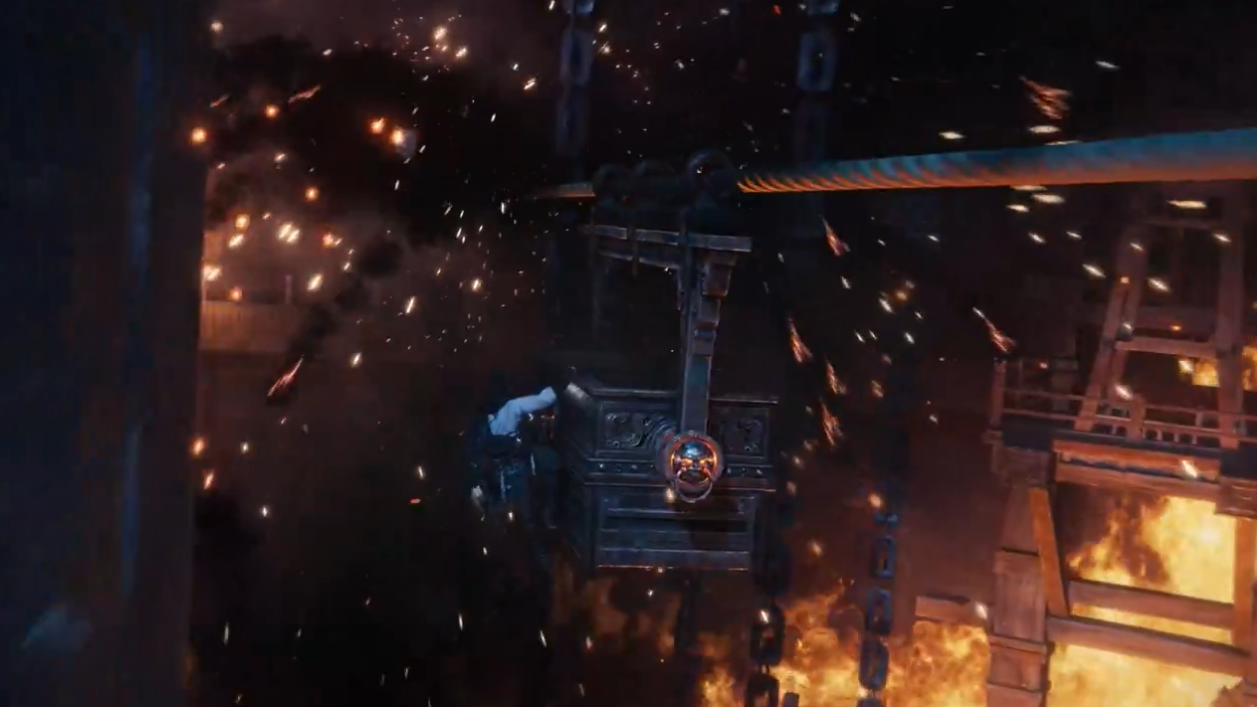Fu Lushou in Where Winds Meet looks like a simple Jianghu Friend on the map, but he behaves very differently from most early NPCs. Players meet him near the General’s Shrine in Qinghe, watch him flip from conversation to combat in a couple of lines, and then spend hours wondering if they’ve broken a quest or lost a major reward.
Who Fu Lushou is and where he sits in Qinghe
Fu Lushou belongs to the “Old Friends” group in the Jianghu Friends system. He turns up in the General’s Shrine neighborhood of Qinghe, the same early hub that contains:
| Content | Location | Main role |
|---|---|---|
| The Silent Assassin | General’s Shrine → Hall of Seasons → Jadebrook Mountain | Time‑of‑day encounter, introduces Long Wu and shrine revisits |
| Echoes in the Shrine | Under the General’s Shrine | Multi‑layer dungeon, Cloud Steps Mystic Skill, environmental puzzles |
| Echoes of Old Battles | Northern Vow Ruins | War‑tomb storyline, Touch of Death, wall and waterwheel puzzles |
| Fu Lubao & Meow Meow | Around the shrine | Grave robber side event, Meow Meow’s treasure bell |
| Fu Lushou & Fang Xu | Near the shrine | Jianghu Friends with volatile AI chat, “problem people” of early Qinghe |
Fu Lushou’s specific role is not to hand out a Mystic Skill or a clear Side Story. He is used to showcase the game’s AI‑driven Old Friends system: open‑ended conversations where you type what you want rather than picking from fixed lines, and where NPC mood matters as much as the topic.
Why Fu Lushou keeps attacking you
Most players hit the same pattern with Fu Lushou:
- He starts seated or leaning against a wall in the General’s Shrine area.
- The first few lines are curt but non‑violent.
- After a handful of replies he dislikes, he snaps straight into combat.
There is no on‑screen mood bar and no explicit “wrong answer” warning. If you push him too hard, or sound threatening, he simply draws his weapon and the chat ends in a fight.
That behaviour creates two fears: that killing him will remove him from the world, and that you might have permanently lost his friendship. Neither is true.
| Action | What actually happens |
|---|---|
| He attacks you | You can fight back and defeat him; the encounter counts as a failed attempt, not a hard lockout. |
| You kill him | Fast travel away or pass time; Fu Lushou respawns in his spot later. |
| Worry about quests | Main Side Stories in Qinghe, like Echoes in the Shrine or The Silent Assassin, are unaffected by his death. |
Fu Lushou is closer to a repeatable social puzzle than a one‑time quest giver. The design expects you to fail, reset the world, and try different tones or topics without any permanent penalty to your overall progression.

Fu Lushou vs. Fu Lubao vs. the Fu Lu Shou sisters
The game places several “Fu / Lu / Shou” characters in the same early arc, and it’s easy to mix them up. They serve different purposes.
| Name | Type | Where they show up | Key interaction |
|---|---|---|---|
| Fu Lushou | Jianghu Friend / Old Friend | General’s Shrine, Qinghe | AI chat about treasure, very short temper, repeatable after death |
| Fu Lubao | Grave robber NPC | Near the General’s Shrine | Wants Meow Meow’s “treasure” bell; leaves once you give him a bell |
| Little Fu, Little Lu, Little Shou | Fu Lu Shou sisters (main story) | Kaifeng, “Furnace of Righteousness” quest | Escort, stealth and rescue sequence; they help you infiltrate the furnace |
Fu Lubao is especially easy to confuse with Fu Lushou, because both live around the shrine and both talk about treasure. Lubao’s arc revolves around Meow Meow’s bell: you solve the Meow Meow puzzle, gain a bell, and then hand a bell over to him. In some sequences, you get a direct “Give bell” interaction; in others, the AI recognises the action if you type it as an in‑world move, such as enclosing an action in quotation marks.
Fu Lushou does not care about receiving Meow Meow’s bell directly. His story is about information, attitude, and his obsession with treasure locations, not about inventory hand‑ins.
How Fu Lushou’s Jianghu Friend encounter is wired
Fu Lushou appears as part of the Jianghu Friends list for Qinghe. That list mixes very different types of encounters:
| Friend | Structure | How you “win” |
|---|---|---|
| Song Jiu (Gift of Gab: Silver Tongue) | Card‑based debate mini‑game | Play the right argument cards in order to drop the opponent’s HP bar to zero. |
| Yan Qiren (Meridian Touch) | Scripted Mystic Skill unlock | Trigger an acupoint interaction once; no real failure state. |
| Feng Jisheng (Yin and Yang, Shadow and Echo) | Cave exploration Side Story | Complete puzzles and combat; conversation is minimal. |
| Fu Lushou | Freeform AI conversation | Keep him talking long enough and on the right track to earn friendship, without pushing him into combat. |
Fu Lushou’s friendship progress is tied to what you say and how you say it. There is no visible checklist of “correct” lines. Instead, you work within a loose framing:
- He is hunting for treasure and wants usable leads, not vague legends.
- He is suspicious and easily offended; boasting, mocking, or taunting him pushes him toward violence.
- He is wired into the same broad shrine‑side tangle as Fu Lubao and Fang Xu, but his outcome is entirely conversational.
The Jianghu Friends menu lets you revisit old chats later. In Fu Lushou’s case, that matters because his behaviour may move between physical positions and chat states — sometimes rejoicing inside a building about treasure, sometimes back on his wall. If you can’t click on him in the world, reopening the social tab and picking the previous conversation can surface follow‑up text that doesn’t surface through an on‑ground prompt.
Fu Luwa the dog and the “easy” friendship route
Fu Lushou isn’t just listening for map markers. One specific name cuts straight through his suspicion: Fu Luwa, a dog he considers his “big brother”.
The game eventually unlocks Animal Talk, which lets you converse with animals. In the General’s Shrine region, there is a dog named Fu Luwa. Once you know that dog and can refer to it, Fu Lushou’s behaviour changes.
| Requirement | What to do | Effect on Fu Lushou |
|---|---|---|
| Animal Talk unlocked | Find and befriend the dog named Fu Luwa nearby. | Establishes background for mentioning Fu Luwa honestly. |
| Chatting with Fu Lushou | Tell him explicitly that you know or are friends with Fu Luwa. | He recognises Fu Luwa’s name and softens immediately. |
| Follow‑up | Let the conversation follow its natural course after this reveal. | Fu Lushou switches out of hostile mode and grants friendship. |
The easiest route to his friendship is to frame Fu Luwa as a shared connection, not just a random dog:
- Describe meeting Fu Luwa and what the dog told or did for you.
- Avoid insulting the dog or joking that Fu Luwa is lying.
- Make it clear you respect Fu Luwa and treat his “big brother” seriously.
Once that link is made, Fu Lushou stops treating you as a nuisance and starts treating you as someone vouched for by family. The friendship registers without needing to brute‑force every possible treasure hint line.
What happens if you give him treasure directions instead
Not everyone reaches Animal Talk before fully clearing Qinghe’s shrine cluster. It is also possible to get Fu Lushou to calm down by doing what he actually asked for in the first place: actionable treasure information.
Players who push the “treasure hunter” angle can:
- Describe a treasure location precisely enough that the game can mark it on Fu Lushou’s map.
- Use language that clearly indicates a map marker or a pointed direction rather than a vague story.
- Watch him leave his wall position and move inside a nearby building, happy about the lead.
Once he relocates, he can become temporarily non‑interactive on the ground, but his social chat history continues from the menu. Pulling that thread lets him thank you and move his Jianghu Friend state forward, even when the physical interaction point is quiet.
This route can be finicky because it depends on the AI recognising that you are marking a spot for him rather than bragging or lying. When it works, it plays directly into his core personality: he values reliable information more than flattery.
How much you can “break” by killing or angering Fu Lushou
Fu Lushou feels fragile — he dies quickly, and the game doesn’t immediately tell you that he’ll be back. Under the hood, he is robust.
| Concern | Reality |
|---|---|
| Permanent death on kill | He respawns after fast travel or time skip. |
| Locked out of main quests | Storylines like Furnace of Righteousness, Palace of Annals, or Meridian Touch are unaffected. |
| Loss of Mystic Skills or Inner Ways | These are awarded by other NPCs and Side Stories, not by Fu Lushou. |
| Loss of exploration or map progress | Boundary Stones, Outposts, Oddities, and Sentient Beings continue to work normally. |
The only thing you risk by mishandling him is his own Jianghu Friends entry, and even that is recoverable. As long as he can reappear in the world or in the chat history, you still have another shot at getting him on your side.

How Fu Lushou contrasts with more structured early content
Fu Lushou is intentionally rough‑edged when placed next to the polished early quests in Qinghe and Kaifeng. The difference is stark:
- Furnace of Righteousness in Kaifeng is a tightly scripted sequence: escort the Fu Lu Shou sisters, rally commoners to sing, infiltrate the coin convoys, break into the furnace, and confront Lord Shi in a three‑phase boss fight. Every step appears as a checklist objective.
- Echoes in the Shrine and Echoes of Old Battles present environmental puzzles and combat: light braziers, time jumps, moving platforms, and clear “success” moments like learning Cloud Steps or Touch of Death.
- Gift of Gab debates show you cards, health bars, and fixed outcomes. Winning is just a matter of picking the right arguments in sequence.
Fu Lushou offers none of that scaffolding. No health bar appears for the conversation. No card deck tells you what to say. No pop‑up announces “Friendship Complete” in the middle of his outburst. He embodies the side of Where Winds Meet that treats text itself as gameplay: you are meant to read personality, adjust tone, and accept that sometimes a swordsman will kill first and apologise later.
The presence of Fu Luwa, the recurrence of the Fu Lu Shou motif in the sisters’ storyline, and the cluster of treasure‑obsessed misfits around the General’s Shrine all point to a deliberate theme: fortune, prosperity, and longevity reimagined as fallible, rough‑edged people wandering a collapsing dynasty, rather than neat icons on a feng shui shelf.
Fu Lushou is not there to reward a single correct line read from a walkthrough. He is there to keep Qinghe’s early hours a little unpredictable. If he’s giving you trouble, the safest approach is simple: let time pass when he dies, get to know Fu Luwa the dog, and come back talking like someone he can actually trust.

